Posted on: 24 January 2020
This week’s leadership message comes from Helen Hirst, Chief Officer for Airedale, Wharfedale and Craven, Bradford City and Bradford Districts Clinical Commissioning Groups. Helen is also the Partnership’s CEO Lead for Organisational Development.
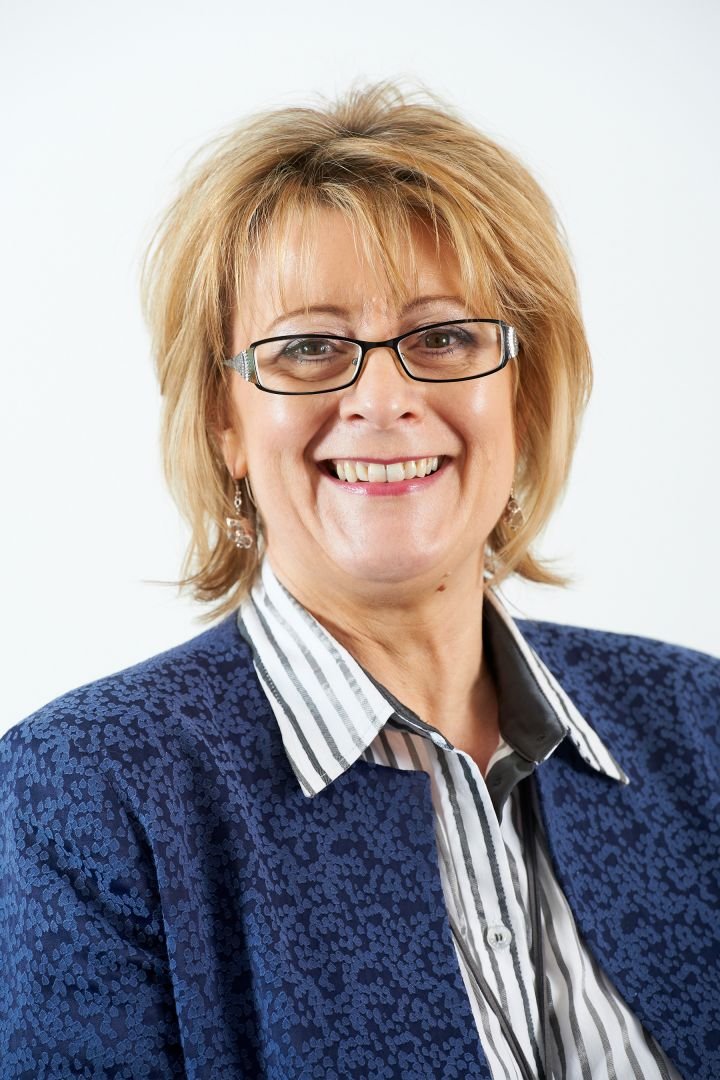 Hello, my name is Helen.
Hello, my name is Helen.
As the Partnership’s CEO Lead for the System Leadership and Development Programme I wanted to take the opportunity to update you on some of the great work taking place across West Yorkshire and Harrogate.
We are known as the ‘OD’ programme although the O in this context is not an organisation it is the West Yorkshire and Harrogate Health and Care Partnership, which is often referred to as a system.
The work we are doing, like all other aspects of the Partnership, starts with our six local places (Bradford district and Craven; Calderdale, Harrogate, Kirklees, Leeds and Wakefield).
So that’s where I’ll start. We secured funding this year to support system leadership development in place. To me system leadership is all about enabling and supporting widespread action – demonstrating the ability to take people with you on a shared goal or ambition, breaking down organisational barriers and doing what’s right for people. It’s a big remit!
Over 130 leaders have benefited from system leadership development as a result of this resource but what is more important is that each place has built sustainability into their plans (often match funding or combining different sources of funding) with the potential to reach hundreds more. It is great that we don’t have to flog the idea of system leadership anymore – it appears to now be default for leadership development across West Yorkshire and Harrogate.
The funding is being used differently in our six local places and is being led by local area need and opportunity. For example:
- Bradford district and Craven is designing a standard profile of best practice in system leadership from which a training programme will follow. It is in the format of a ‘train the trainer’ model with the intention of providing leadership development for the entirety of the community based leadership.
- Calderdale combined their funding with the apprenticeship levy to support a cohort of people to achieve a two year ILM level 5 accredited qualification built around a public/private sector system leadership development offer through Calderdale College.
- Harrogate is seeking to improve leadership capability through coaching, mentoring and developing their population health approach. Their work is focused on the Harrogate Rural Alliance which includes their primary care network and community service providers.
- Kirklees has developed a systems leadership programme, where 40 leaders are engaged in a broad programme. A set of master classes is also being developed for 25 local leaders to learn about system working through a case study approach.
- Leeds has enhanced their city clinical leadership development programme with 20 clinicians in health and care organisations being supported. Eight facilitators have also been trained to enable sustainability of the programme.
- Wakefield has a whole system mentoring scheme covering the council, NHS and voluntary and community sector. 25 mentors and mentees are being paired initially, with more identified for phase two.
Following our programme check and confirm sessions last year, it was clear from colleagues there is a need for OD support. It’s fair to say we picked up a number of ‘asks’.
Programme leads were asked to consider, with the aid of a magic wand (really), what changes would have maximum impact on their work. Responses included thinking through how best to work in a new ‘system’ environment; how they spread and share the enthusiasm they have; securing ownership and buy in across the Partnership; and how they can create a movement for change like they have heard about in Canterbury Healthcare, New Zealand. (Canterbury Healthcare has received international recognition for their integrated system).
Over the past six months we have facilitated OD work with the unpaid carers programme; supported the first primary care network development event for the primary and community programme; worked with the Cancer Alliance and commissioned an approach to support a single operating model for bariatrics (also known as weight-loss surgery). We are also supporting a similar piece of work for assessment and treatment units (ATUs). They provide specialist hospital support for adults with moderate to severe learning disabilities, who also have mental health problems and/or behaviour that challenges.
There has been an emerging theme from programmes about the dynamic between place based working and how we harness the added value of working across West Yorkshire and Harrogate to reach its full potential. The workforce programme has turned their thinking into a formal proposition. A similar discussion is taking place in the primary and community programme. This is a big theme for our work in the months ahead.
Across the wider partnership the Clinical Forum had been doing some focused work. It has been looking at how we ensure clinical leadership is more ambitious, inclusive and impactful, and what this means in terms of delivering West Yorkshire and Harrogate priorities in our places and across the wider Partnership. The shadow system leadership executive has run for its first four months supported by Inspiring Leaders Network and has agreed to continue for the remainder of the year. This is a great way for future leaders to experience the partnership first hand and they provide some insightful contributions to the debate.
Sam Kelly joined the OD team at the end of the year. Sam leads on talent management and has been out and about getting a feel for the great work already happening in each organisation to ensure we don’t duplicate previous or existing work and importantly share some of the excellent initiatives taking place. This gives us the opportunity to spread good practice – one of the very reasons the Partnership exists.
An important part of our work is bringing people together. The OD network has met a couple of times recently. We were treated to a session from John Walsh, Organisational Development Lead and Freedom To Speak Up for Leeds Community Healthcare NHS Trust and Steve Keyes, OD and systems consultant, Leeds GP Confederation about developing leadership through communities and at our meeting earlier this month. Steve Brennan, Programme Place Director from Kirklees shared the learning from the leadership development work in their system.
In pursuit of our aim to be self-improving systems that shares learning and develops as a whole Partnership we have just completed our second place peer review. The first was in Wakefield. Kirklees opened their doors and invited colleagues from West Yorkshire, Darlington and Surrey Integrated Care System (who were also learning from our approach) to review how they were setting out and communicating their vision for local people, whilst ensuring the whole system was working together in pursuit of better health, care and wellbeing for everyone.
Jacqui Gedman, CEO from Kirklees Council, is writing next week’s message, so I will leave it to her to let you know whether she believes the review added value.
From my perspective it provided another opportunity for colleagues from outside of Kirklees to understand the local place so much better and to consider how the Partnership as a whole can improve to ensure that place has primacy. It’s great to meet colleagues outside of your day to day working environment and there is always something new to learn and share. Next steps include working more closely with one or two of our priority programmes to test the peer review approach in a narrower context and then planning for the next place review in early summer.
In the programme team we said farewell to Programme Director, Sherry King, who has returned to NHS England/Improvement and a big hello to Peter Wyllie who has come in to support peer review. Tessa Hawkes is providing some much needed business support.
Having had some great candidates for Sherry’s replacement we have appointed Jo Farn to the role. Jo is currently Head of Organisational Learning and Improvement at Airedale NHS Foundation Trust.
Finally Jo and I have done a podcast about leadership and ‘OD stuff’ and how we make these big partnerships real for people. You can listen to it here.
Have a good weekend,
Helen
What else has been happening this week?
Mental Health, Learning Disabilities and Autism Programme Board
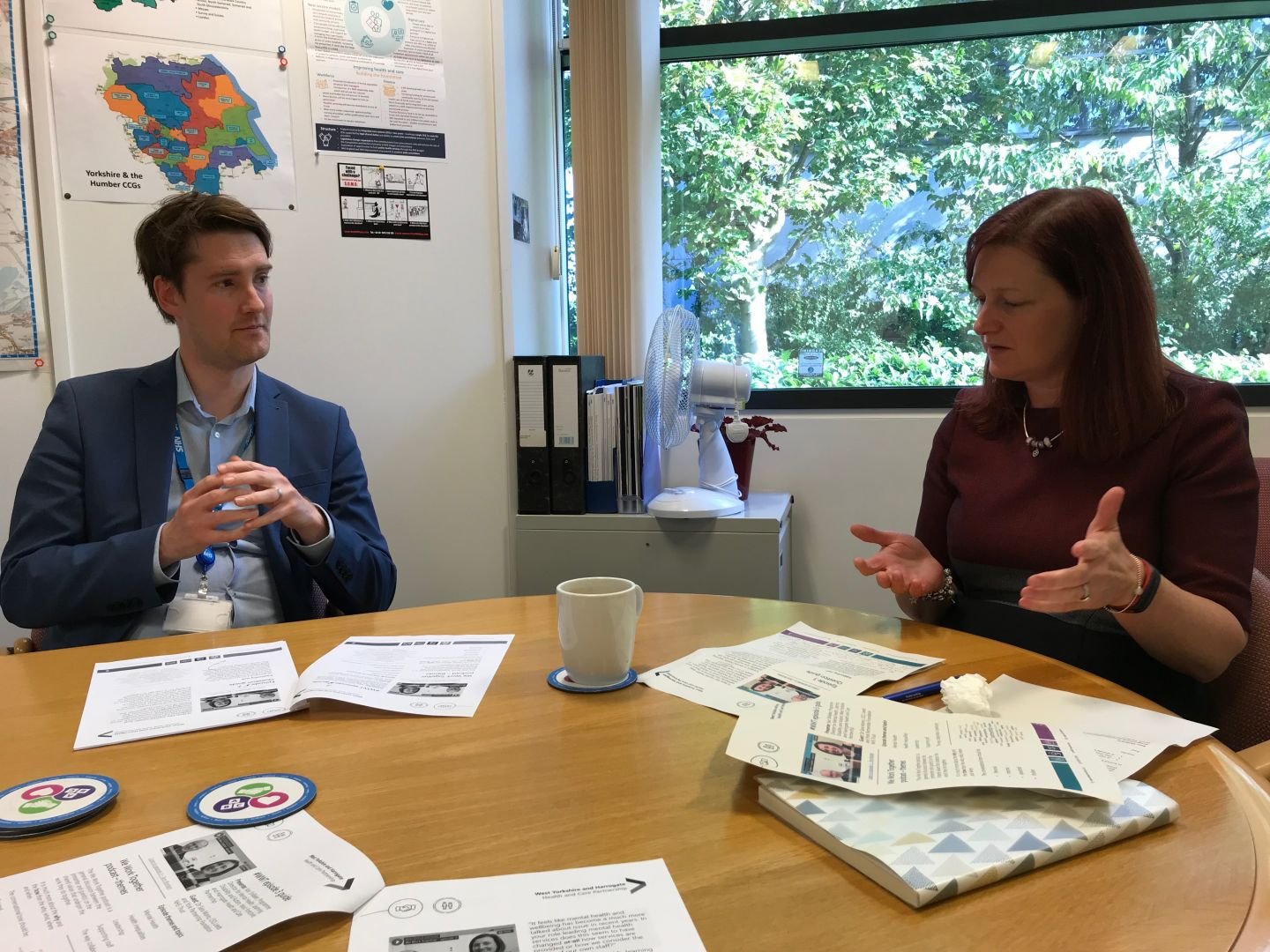 The Programme Board met last Friday and was chaired by Sara Munro, CEO Lead for the Collaborative Board and CEO for Leeds and York Partnership NHS Foundation Trust. The programme is made up of colleagues from the NHS, council and community sector. Colleagues gave an update on various work streams, including the development of a programme dashboard and metrics to demonstrate transformation in each project, with the aim of launching these from April 2020.
The Programme Board met last Friday and was chaired by Sara Munro, CEO Lead for the Collaborative Board and CEO for Leeds and York Partnership NHS Foundation Trust. The programme is made up of colleagues from the NHS, council and community sector. Colleagues gave an update on various work streams, including the development of a programme dashboard and metrics to demonstrate transformation in each project, with the aim of launching these from April 2020.
Progress on work to improve services for people with a learning disability was a focus, describing the West Yorkshire and Harrogate picture from the Transforming Care Programme and some of the local challenges. There was also an update on assessment and treatment unit engagement.
Decisions by the System Leadership Executive to support a suicide reduction campaign and a submission to become the first integrated care system in the country signed up to the Mental Health Prevention Concordat were also relayed. An update on the intention to apply for Wave 3 Suicide Prevention funding was also discussed.
Improving services for people with autism and the commitment of partners to work together to improve service resilience was also high on the agenda.
Finally, the group discussed the new secondary care pathways work stream which will set its priorities in February and will work across all NHS mental health providers, Yorkshire Ambulance Services and West Yorkshire Police to improve our collective position on emergency support for people in crisis and flow into and out of our hospital mental health wards. This included early findings from our review of psychiatric intensive care unit provision with a commitment to bring proposals back to the group in the coming months.
System Oversight Assurance Group
The Partnership’s System Oversight and Assurance Group (SOAG) met on Tuesday. This group takes an overview of progress with our shared priority programmes and seeks to agree collective action to help tackle shared challenges. This month’s meeting received updates from five programmes: urgent and emergency care, planned care, capital and estates, innovation and improvement, and personalised care. A paper on Partnership finances confirmed that the most likely forecast for the end of 20219/20 is that the aggregate financial position for NHS partners will be in line with plans, although a number of risks will need to be managed.
The group agreed proposals for implementing a new approach to assurance and oversight of organisations in West Yorkshire and Harrogate. We will move from routine reviews of individual organisations to more integrated reviews of whole places, covering progress on strategic change and transformation as well as routine performance. This change is an important step in the development of our approach to mutual accountability and support.
West Yorkshire and Harrogate Person Centred Skills Development Network
The West Yorkshire and Harrogate Person Centred Skills Development Network is an exciting new pilot project funded through the West Yorkshire and Harrogate LWAB (Local Workforce Action Board). The project is being developed as a collaboration between personalised care, public health, end of life, pharmacy, social care colleagues and the West Yorkshire and Harrogate Excellence Centre. The project aims to support the development of skills, knowledge and confidence for those working in health and social care to have person-centred conversations that focus on the ‘What Matters to Me’ approach to help people and each other stay healthy and improve physical and mental health and wellbeing.
The project will develop person-centred skills training centrally that we can pilot and deliver in our six local places (Bradford district and Craven; Calderdale, Harrogate, Kirklees, Leeds and Wakefield). We are keen to work with colleagues and staff to develop resources or tools (‘scaffolding’) that can help staff be confident using these skills in their workplace. This could include online forums, peer support, checklists, toolkits etc. We hope to have developed our training and scaffolding over the next couple of months, ready to start delivery in the spring. We will keep you updated on progress and any opportunities to get involved.
For further information please contact Pia Bruhn on pia.
Improving Planned Care Programme Board
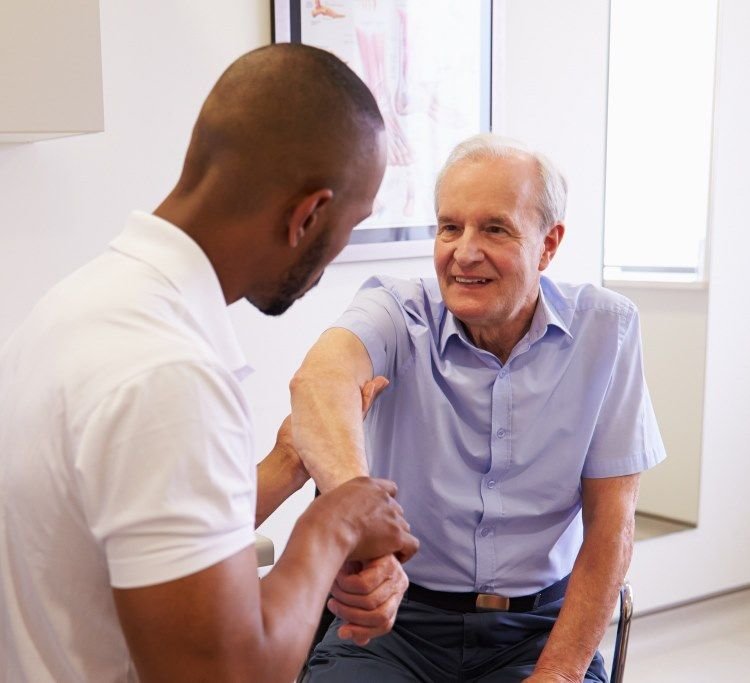 The West Yorkshire and Harrogate Musculoskeletal (MSK) Pathway and shared decision-making
The West Yorkshire and Harrogate Musculoskeletal (MSK) Pathway and shared decision-making
At its meeting on 21 January 2020, the Improving Planned Care Programme Board discussed the progress of the implementation of the standardised MSK clinical pathway across the region and how shared decision-making is being embedded into that pathway - and all our clinical pathways, commissioning policies and service specifications as they are being reviewed and standardised. Shared decision-making is one aspect of personalisation where patients are at the centre of important decisions about their own healthcare.
In practice, this means that treatment options, choices, benefits, outcomes and any associated risks are all discussed with patients before a shared decision is made as to which, if any, treatment is undertaken. This approach gives patients the information they need to make decisions that are right for them and their individual circumstances, and it allows clinicians to tailor healthcare to meet a patient’s specific needs.
Clinicians talking to patients about treatment options isn’t a new concept by any means – it goes on all the time but the key difference with shared decision-making is that the clinician and the patient are regarded as being on an equal footing, both as ‘experts’ from the outset. Clinicians are experts at diagnosing medical conditions and treating those conditions whilst patients are the experts when it comes to their own health and way of life.
There isn’t a one-size-fits-all approach to shared decision-making which is why the Board agreed that it should be the responsibility of our six areas across West Yorkshire and Harrogate to decide how it will be embedded into clinical practice for their local populations.
Board members welcomed the commitment to share good practice, resources and learning across our six areas to help facilitate the cultural change where well-informed patients have more say in decisions about their own healthcare. The West Yorkshire and Harrogate MSK pathway was approved by our Joint Committee of Clinical Commissioning Groups in May 2019 and our six areas have three years from that date to implement it in its entirety.
Patient insight project
A local research agency based in Yorkshire has recently been appointed to engage with our diverse communities across Leeds and Harrogate to capture patient insight around the First Contact Practitioners scheme that places MSK practitioners and physiotherapists within GP practices. The project will start within the next few weeks and will run for six months. The agency will deliver two specific learning events in the summer and will have monthly update meetings with the Partnership, as well as issuing an interim report to inform how the project is progressing and highlight initial findings. Regular updates from the project will be provided to the Programme Board with the final report due for delivery at the Board’s meeting in September 2020.
Urgent and Emergency Care Programme Board
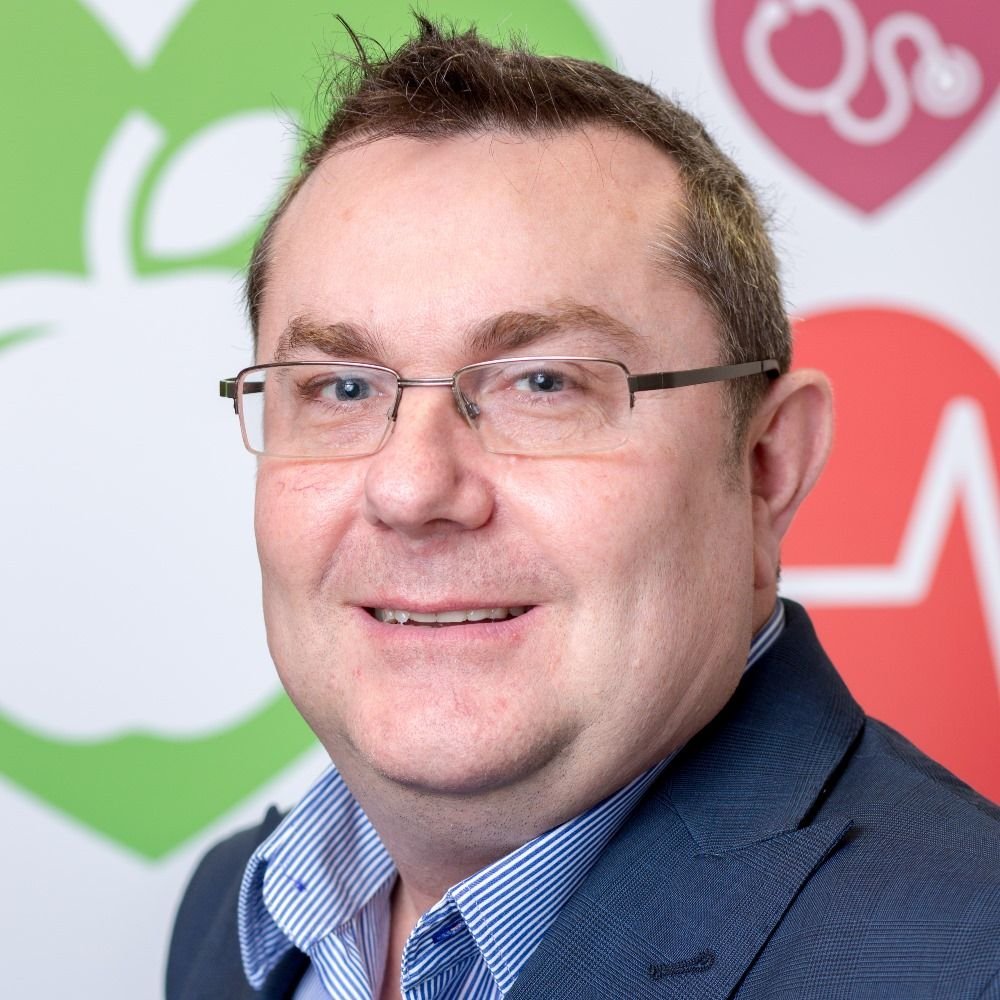 The Board met on Tuesday. The meeting was chaired by Dr Adam Sheppard, our clinical lead for the programme and Chair of Wakefield Clinical Commissioning Group.
The Board met on Tuesday. The meeting was chaired by Dr Adam Sheppard, our clinical lead for the programme and Chair of Wakefield Clinical Commissioning Group.
The Board discussed the three priorities which are the current focus for work. This includes the establishment of task and finish groups, led by various board members. The three priorities have been agreed with various partners including the five A&E Delivery Boards across West Yorkshire and Harrogate; the Partnership’s Clinical Forum, commissioners and importantly providers. These are:
- The use of intelligence to inform the urgent and emergency care narrative so we fully understand the key drivers for demand.
- Joining up care in relation to health outcomes for people and use of resources.
- Understanding the access to local urgent care.
Gaynor Clark from the Yorkshire and Humber Local Workforce Action Board updated the board on a workforce session taking place with stakeholders on the 28 January. Our aim is to develop and maintain a UEC workforce that is supported by an agreed competency framework.
A&E Delivery Board leads provided an update on the challenges in each of our local areas. This formed part of our winter delivery agreement.
The integrated winter room was also discussed as part of an overall update on the UEC Programme at the Partnership’s Clinical Forum and the Joint Committee of the Clinical Commissioning Groups last week.
The West Yorkshire and Harrogate winter daily intelligence report went live on Monday. The reports will run for three months. We have worked with A&E boards, our local places and the Yorkshire Ambulance Service (YAS) to enhance and build intelligence from data that can add value to the work of the five A&E board winter plans for 2019/20.
Our YAS colleagues have agreed to co-ordinate a daily intelligence report which will be circulated on a daily basis (Monday to Friday) to UEC commissioners and providers in order to inform local decision making.
We are also exploring additional areas of good practice which can be shared across West Yorkshire and Harrogate, including the use of tools, such as the Care Home Bed Capacity Tracker. We will talk about sharing good practice and new initiatives taking place at our next programme board in more detail.
Kirklees to benefit from community-based urgent care service
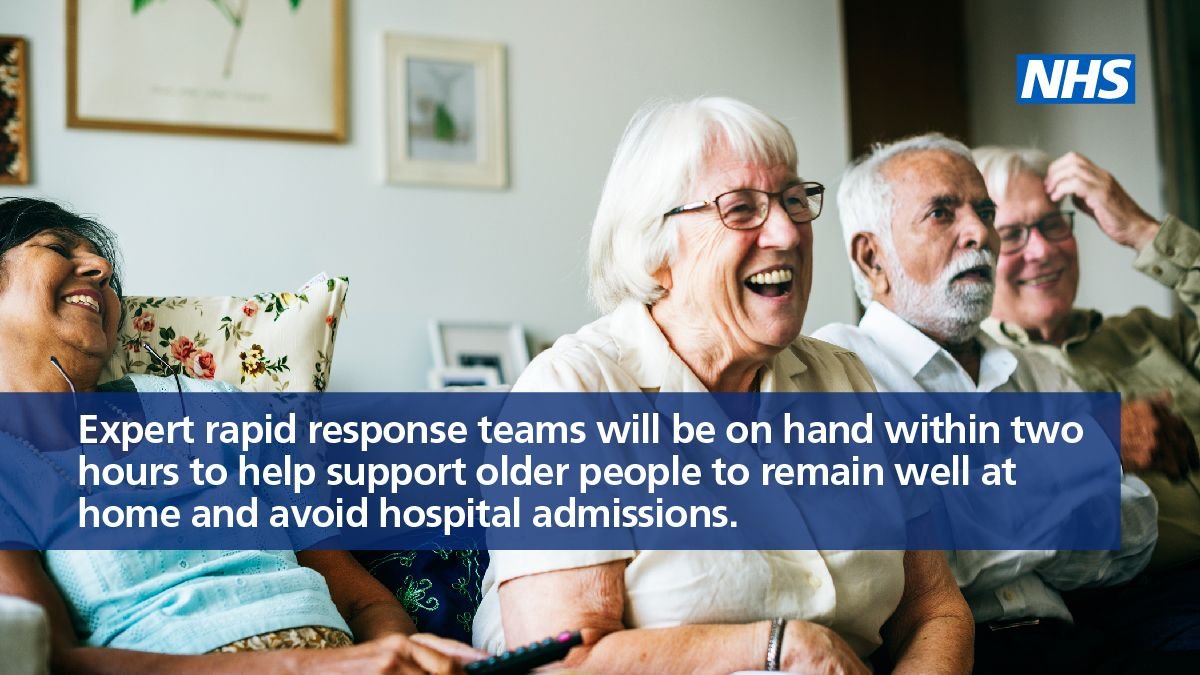 Kirklees will receive new funding to develop a community-based urgent care service for some of some of the most vulnerable patients, including those who are frail, elderly or have multiple long-term conditions. Under plans announced on Thursday, local NHS, council and community service teams will work together to develop the service, which will ensure urgent health and social care support is available within two hours to help the elderly and those with complex needs remain well at home and avoid hospital admissions.
Kirklees will receive new funding to develop a community-based urgent care service for some of some of the most vulnerable patients, including those who are frail, elderly or have multiple long-term conditions. Under plans announced on Thursday, local NHS, council and community service teams will work together to develop the service, which will ensure urgent health and social care support is available within two hours to help the elderly and those with complex needs remain well at home and avoid hospital admissions.
The service will also ensure people receive tailored packages of care designed to restore independence and confidence after a hospital stay, within two days.
Kirklees is one of seven national ‘accelerator’ sites which will receive a share of a £14 million national investment. The funding is part of a commitment set out in the NHS Long Term Plan to help keep older people well at home and reduce pressure on hospital services. You can read more here.
Rob Webster, our CEO Lead said: 'This investment in Kirklees as one of seven national accelerator sites is good for Kirklees and for West Yorkshire and Harrogate. Improving the lives of people through ageing well and supporting more people to remain independent at home is a priority to us all.
'This investment will support the testing out of new approaches, including faster access to community services for older people with an urgent need. Any learning will be adopted by the Partnership to support thousands more people and reduce unnecessary hospital admissions. This is linked to the other ‘ageing well’ programmes across West Yorkshire and Harrogate and demonstrates the power of partnerships'.
Working carers passport
West Yorkshire and Harrogate Health and Care Partnership are working together as part of the carers programme to introduce a flexible working arrangement via the working carers’ passport. This is an agreement between the carer and their manager, on behalf of the organisation. The intention is for the carer to be able to manage their working role alongside their caring responsibilities. It’s a mutually beneficial arrangement as it enables the organisation to maintain staff retention, reduce unplanned absenteeism and to retain the skills they need whilst improving staff morale and loyalty.
A recent survey in 2019 of NHS working carers showed that only 20% of managers shared this information with their manager. This meant they were under increasing pressure in and out of work without any support.
The working carers’ passport will initially be rolled out across West Yorkshire Association of Acute Trusts (WYAAT). This phase of the campaign will also include Provider Trusts (mental health, learning disabilities and / or autism).

